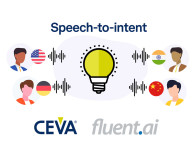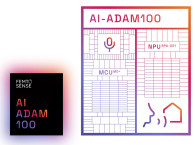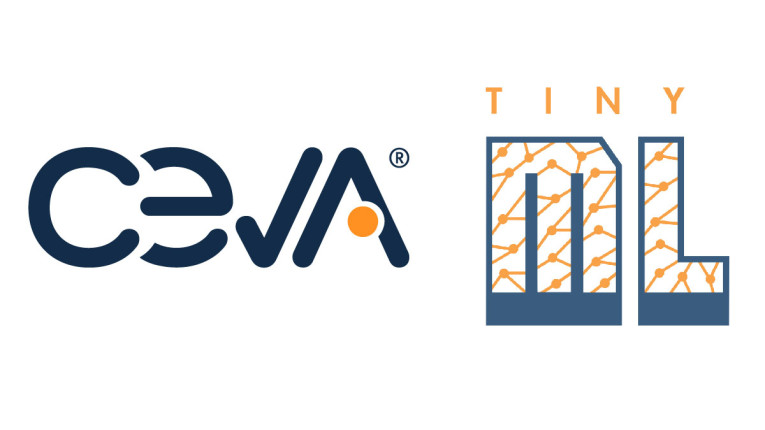
Ceva believes its new single-core “nano” Edge NPU, purpose-built to manage TinyML models, holds the promise to unlock an array of new applications and uses cases, many of them in battery-powered and size-constrained products. With a more flexible, programmable approach based on its proven licensable IP model, Ceva is delivering a solution for SoC chip companies and device makers to more easily deploy TinyML-based innovations at industry leading power and performance standards.
TinyML refers to the practice of deploying machine learning models on low-power, resource-constrained devices bringing the power of AI to the “Internet of Things.” Driven by the increasing demand for efficient and specialized AI solutions in connected devices, the market for TinyML is growing rapidly. According to research firm ABI Research, by 2030 75% of TinyML shipments will be powered by dedicated TinyML hardware rather than all-purpose MCUs. By addressing the specific performance challenges of TinyML, the Ceva-NeuPro-Nano NPUs aims to make AI ubiquitous, economical and practical for a wide range of use cases, particularly for voice and hearables.
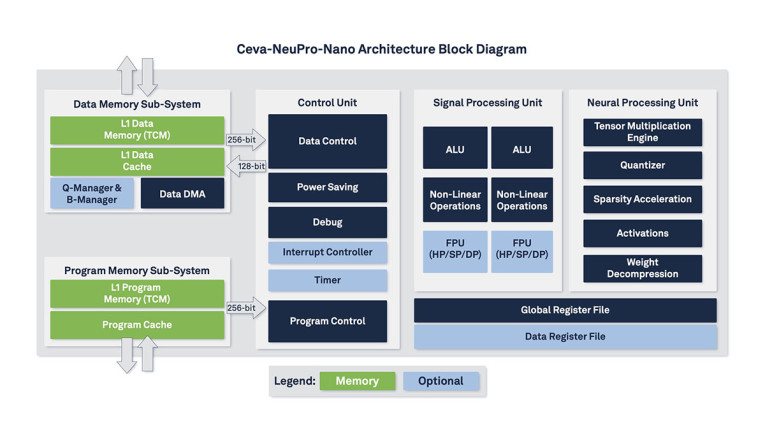
Furthermore, Ceva-NetSqueeze, a new on-the-fly weight decompression tool enables the Ceva-NeuPro-Nano NPUs to achieve up to 80% memory footprint reduction, solving a key bottleneck inhibiting the broad adoption of Edge AI processors today.
“Ceva-NeuPro-Nano opens exciting opportunities for companies to integrate TinyML applications into low-power IoT SoCs and MCUs and builds on our strategy to empower smart edge devices with advanced connectivity, sensing and inference capabilities. The Ceva-NeuPro-Nano family of NPUs enables more companies to bring AI to the very edge, resulting in intelligent IoT devices with advanced feature sets that capture more value for our customers. By leveraging our industry-leading position in wireless IoT connectivity and strong expertise in audio and vision sensing, we are uniquely positioned to help our customers unlock the potential of TinyML to enable innovative solutions that enhance user experiences, improve efficiencies, and contribute to a smarter, more connected world,” states Chad Lucien, vice president and general manager of the Sensors and Audio Business Unit at Ceva.
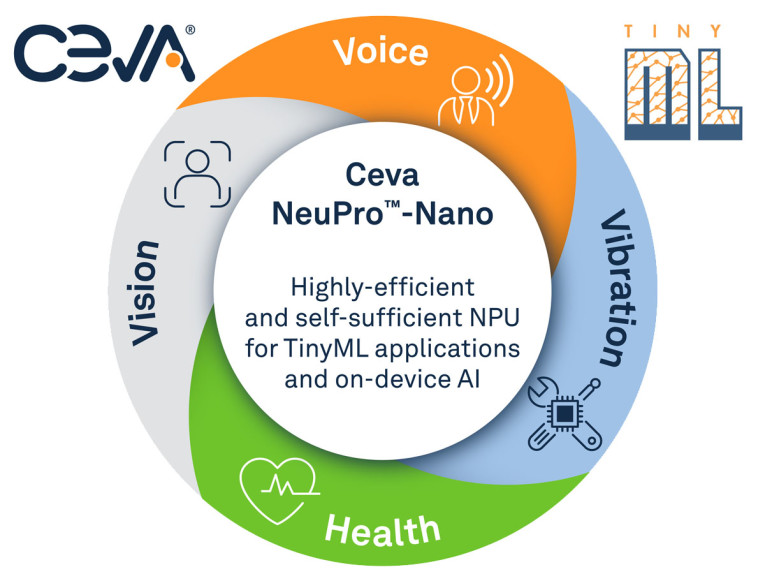
The Ceva-NeuPro-Nano NPU is available in two configurations - the Ceva-NPN32 with 32 int8 MACs, and the Ceva-NPN64 with 64 int8 MACs, both of which benefit from Ceva-NetSqueeze on-the-fly weight decompression. The Ceva-NPN32 is highly optimized for most TinyML workloads targeting voice, audio, object detection, and anomaly detection use cases. The Ceva-NPN64 provides 2x performance acceleration using weight sparsity, greater memory bandwidth, more MACs, and support for 4-bit weights to deliver enhanced performance for more complex on-device AI use cases such as object classification, face detection, speech recognition, health monitoring, and others.
The NPUs are delivered with a complete AI SDK - Ceva-NeuPro Studio – which is a unified AI stack that delivers a common set of tools across the entire Ceva-NeuPro NPU family, supporting open AI frameworks including TensorFlow Lite for Microcontrollers (TFLM) and microTVM (µTVM).
Ceva-NeuPro-Nano NPUs are now available for licensing. More information is available here.
www.ceva-ip.com





